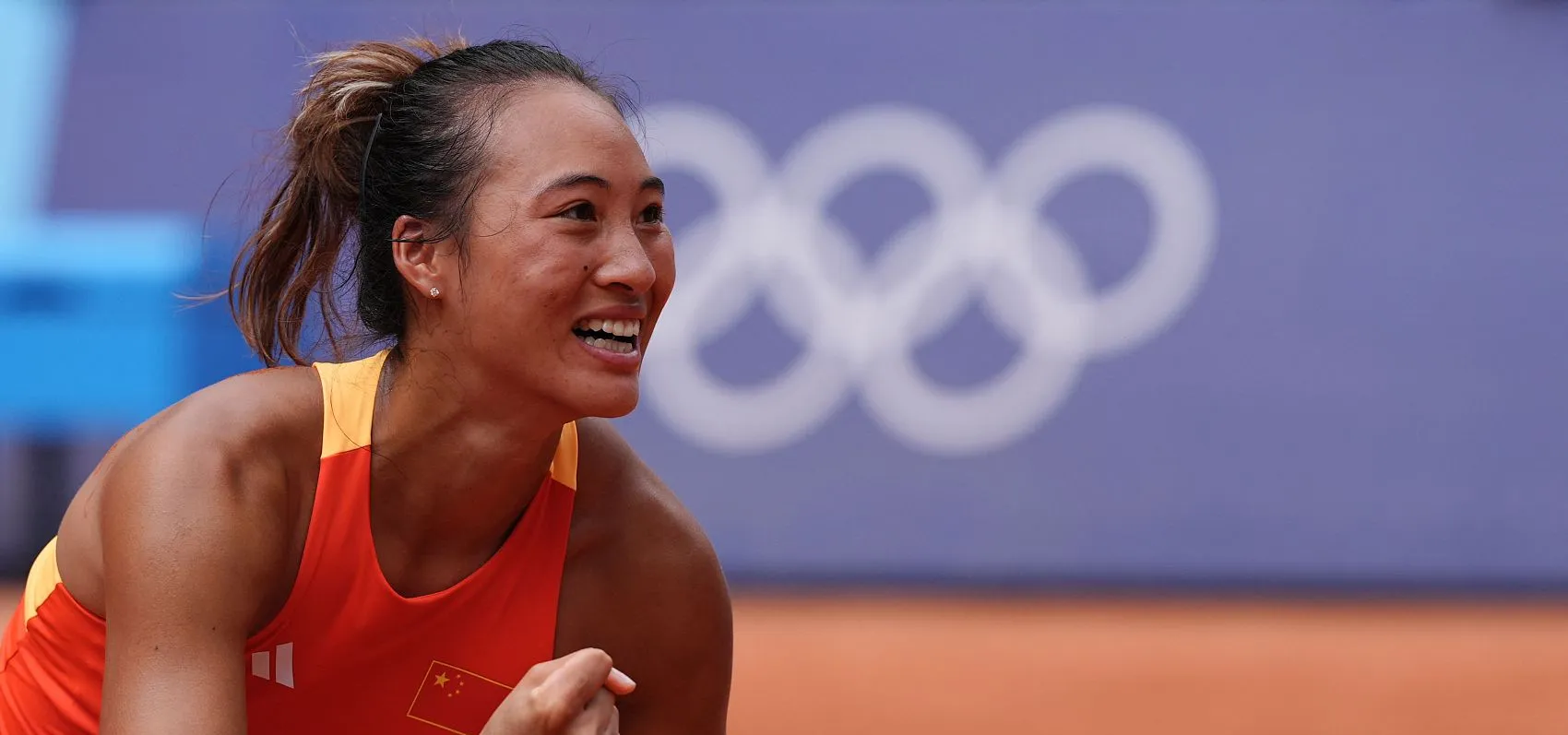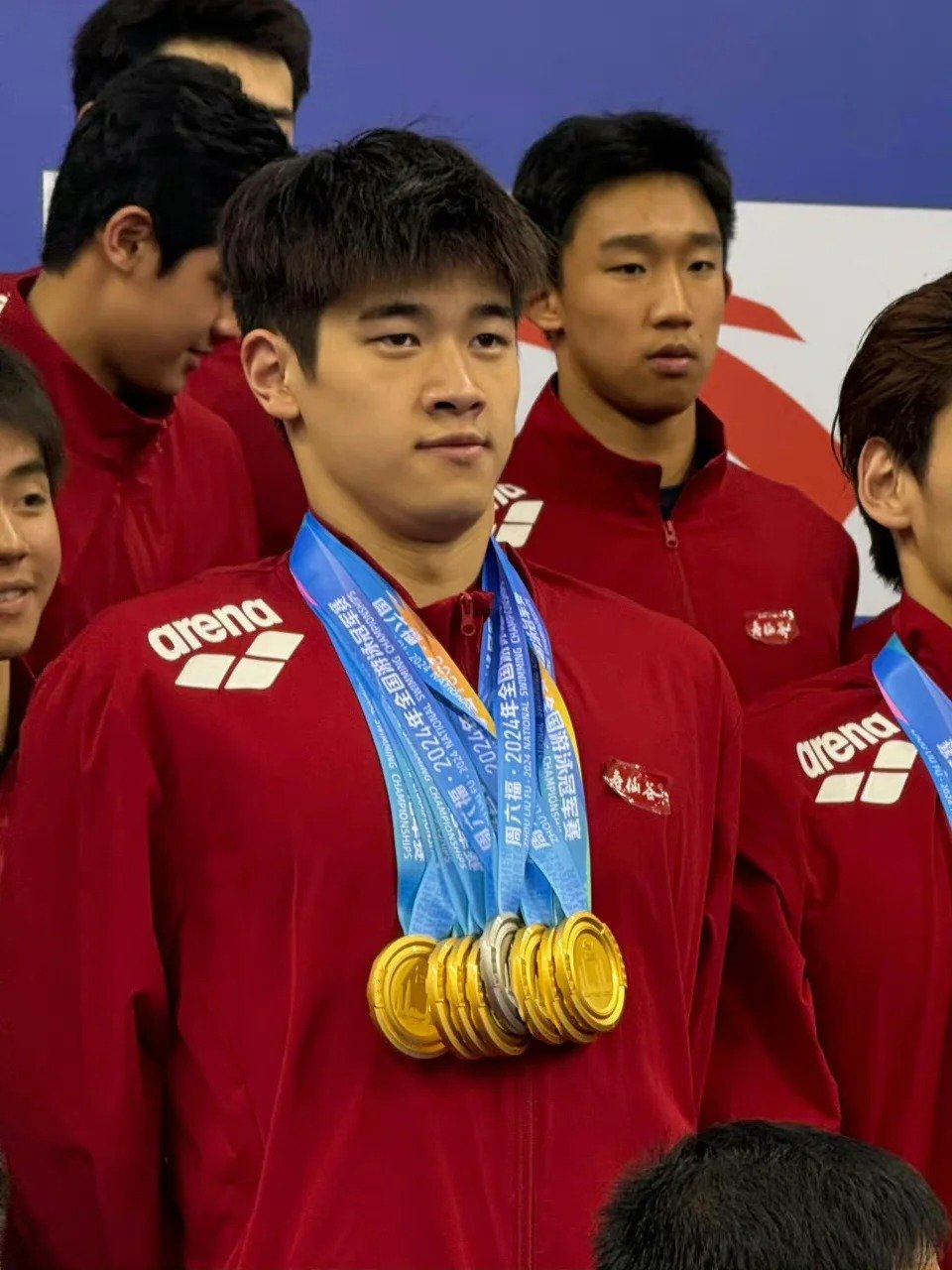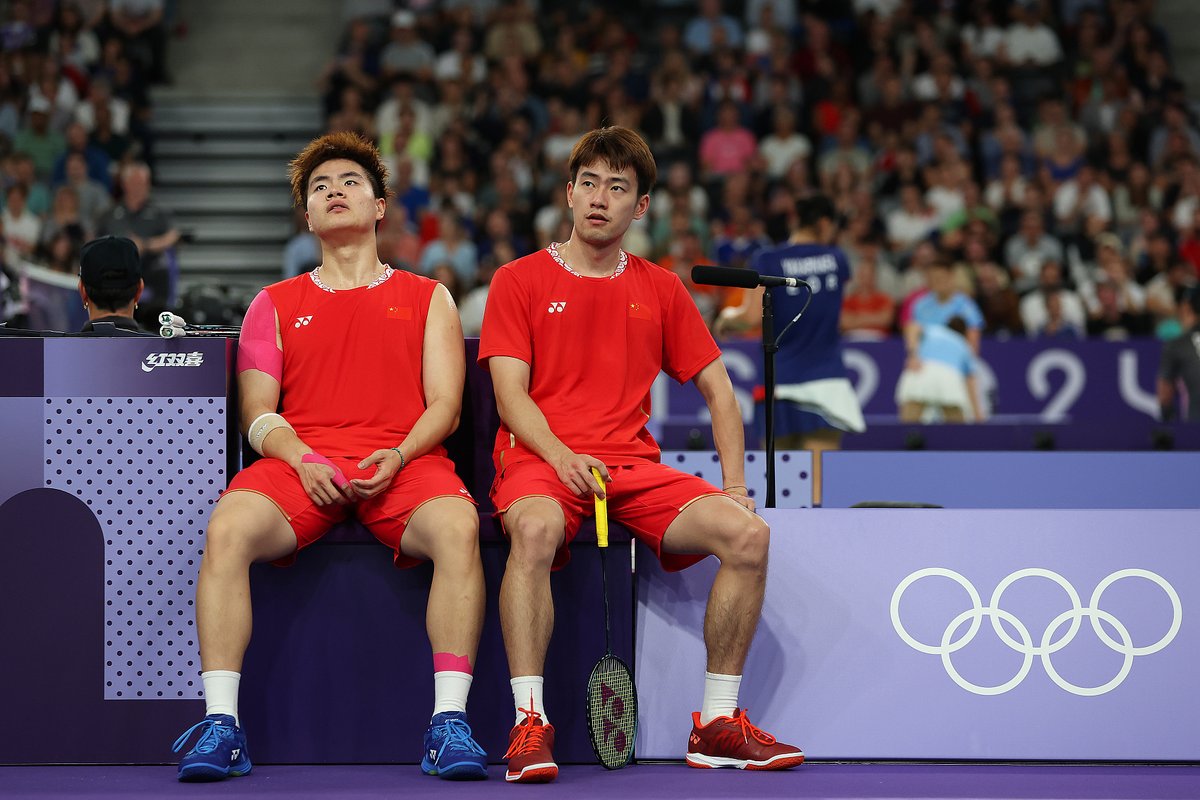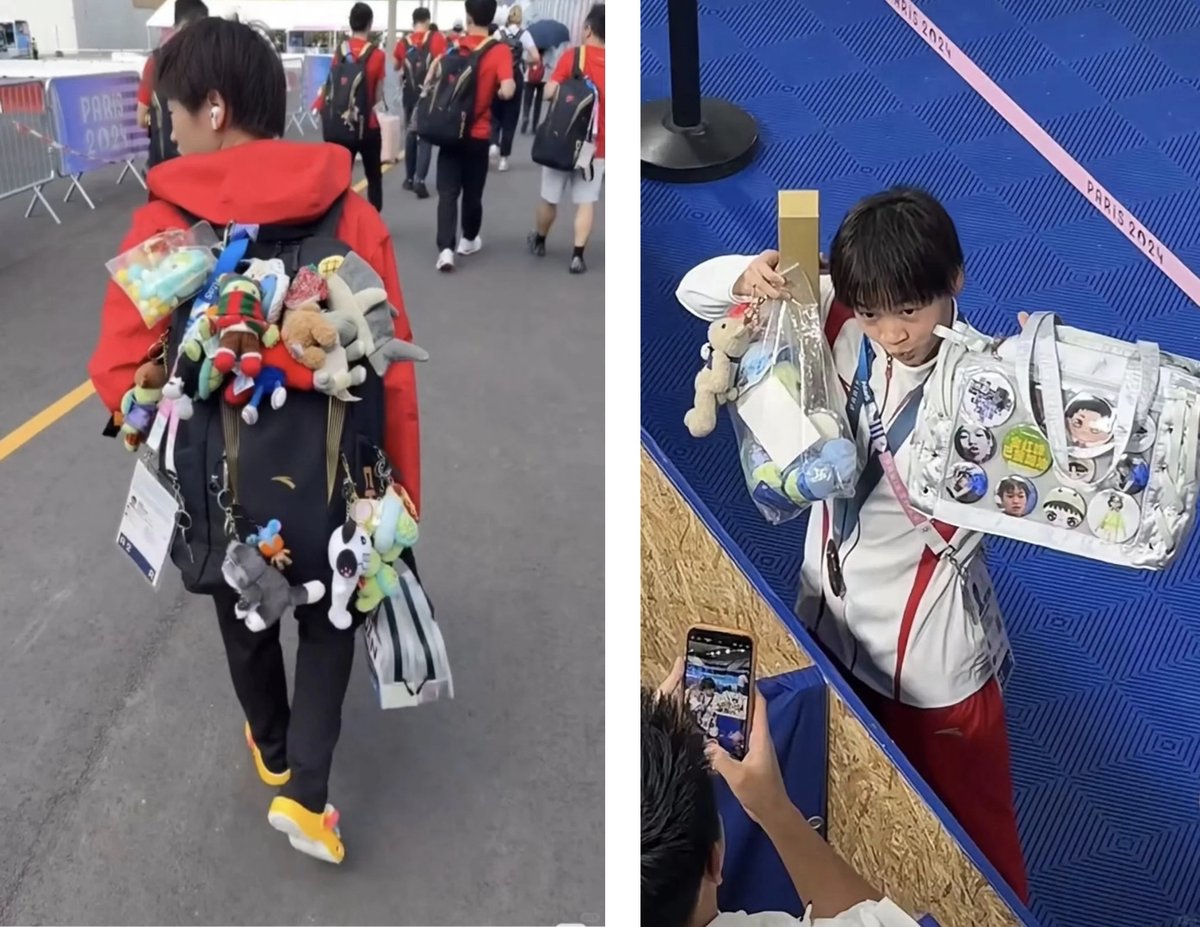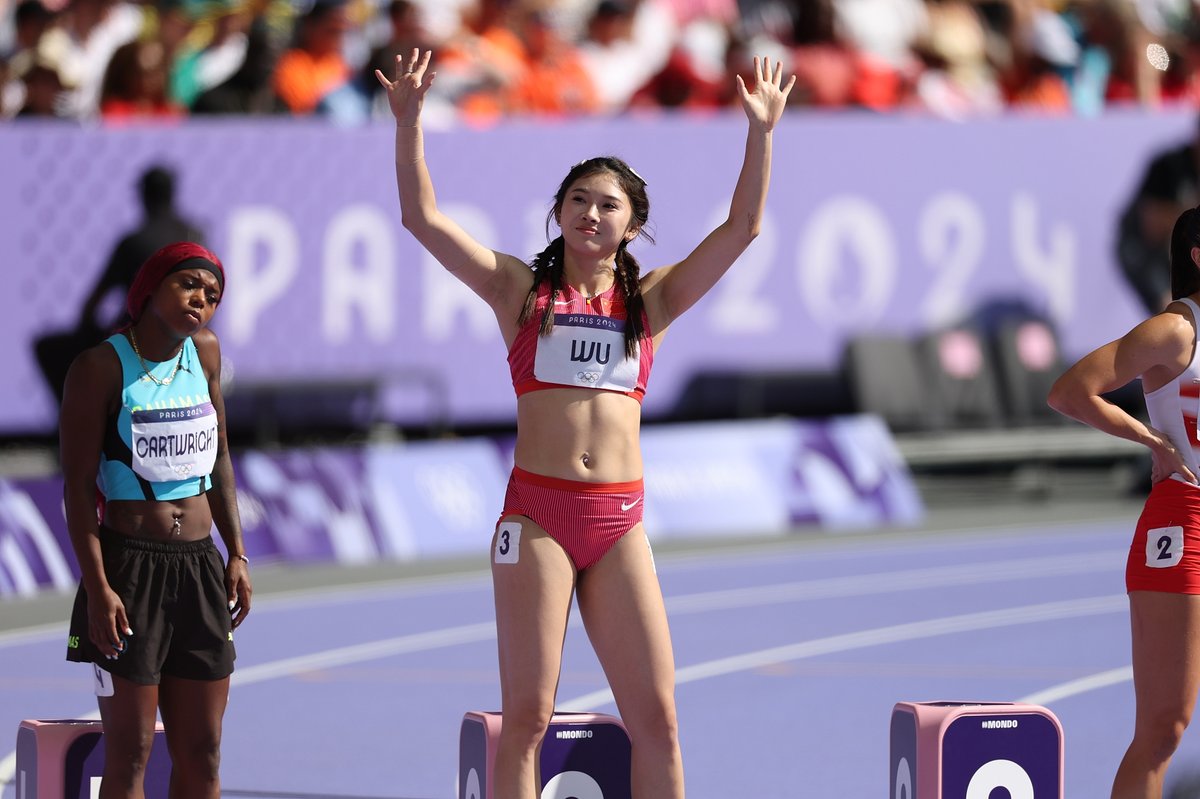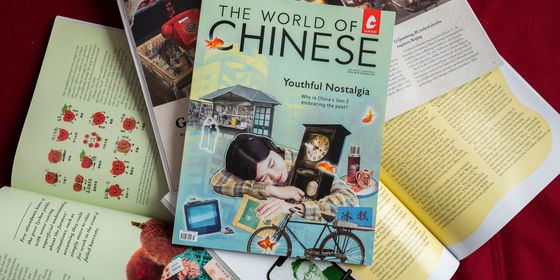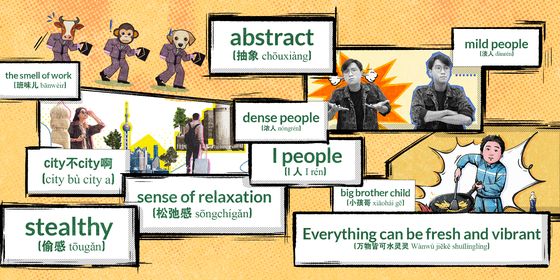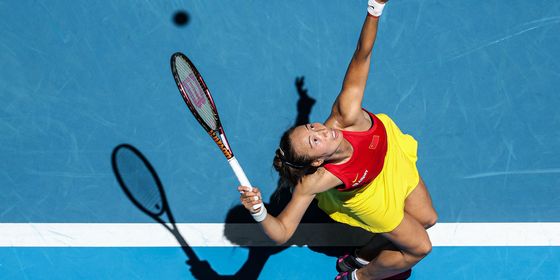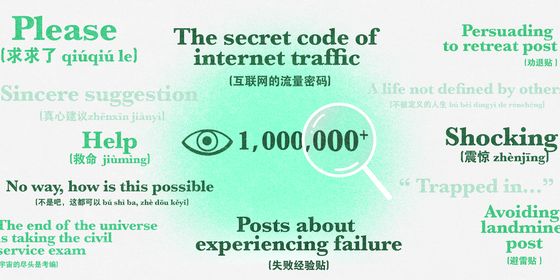Asserting their opinions and reshaping body image, “post-00s” Chinese athletes are redefining what it means to be Olympians
With young adults born in 2000 turning 24 this year, China’s “post-00s” generation is increasingly in the public eye. After they’ve allegedly “reformed the workplace (整顿职场 zhěngdùn zhíchǎng)” by speaking up for their rights as employees, the Gen Z, or linglinghou (零零后 línglínghòu), have started to assert themselves and change the perception of Chinese athletes at the Paris Olympics (现在都去整顿奥运会 xiànzài dōu qù zhěngdùn Àoyùnhuì).
According to the Global Times, the average age of the Chinese sports delegation was 25. The “big brother children (小孩哥 xiǎohái gē)” and “big sister children (小孩姐 xiǎohái jiě),” as netizens have affectionately termed these high-school-aged or younger competitors, have charmed both domestic and international viewers with their dynamic personalities and outspoken views: a marked contrast from the modest, reserved, and conformity-oriented image associated with previous generations of Chinese athletes.
First, China’s Gen Z athletes seem to not be afraid of offending public opinion or authority figures, a spirit that netizens have dubbed “the superb relaxation of the post-00s generation (00后超绝松弛感 línglínghòu chāojué sōngchígǎn).” Swimmer Pan Zhanle, who set a new world record by storming to victory in the men’s 100m freestyle final at the Paris Olympics on July 31, was labeled by patriotic viewers as the “god of interviews in the sports world (体育界掌管采访的神 tǐyùjiè zhǎngguǎn cǎifǎng de shén)” after complaining about unsportsmanlike behavior of athletes from Australia and the US to a Chinese broadcaster.
Netizens, impressed by Pan’s straightforward (耿直 gěngzhí) and unpretentious (不世故 bú shìgù) character, commented on microblogging platform Weibo: “If young people aren’t presumptuous, can they still be called young (年轻人不气盛那还叫年轻人吗 Niánqīngrén bú qìshèng nà háijiào niánqīngrén ma)?” and “If you’re unhappy, just say it out loud (不爽就直接说出来 Bùshuǎng jiù zhíjiē shuō chūlái).”
Learn more about the Olympics:
- The Mermaid: How China’s First Female Olympian Paid the Price of Fame
- Learn the Viral Slang of the Paris Olympics
- Nine Chinese Athletes to Watch at the Paris Olympics
Also noticing Pan flaunting his medals in photos, and displaying his past awards around his bed canopy at home, his fans commented, “Winning without showing off is like not winning at all (赢了不装等于没赢 Yíngle bù zhuāng děngyú méiyíng).” Chinese viewers, many of them also linglinghou, identify with these outspoken athletes for “rejecting self-doubt (拒绝精神内耗 jùjué jīngshén nèihào).”
Outside of swimming, badminton players Wang Chang and Liang Weikeng have become renowned for only “ranking number one in the world, but having a top-notch sense of relaxation (排名世界第一,松弛感也是世界第一 páimíng shìjiè dì-yī, sōngchígǎn yě shì shìjiè dì-yī).” While one would expect athletes to discuss tactics during breaks, the duo, in their early 20s, chitchatted about the brand of chairs in the arena. During interviews, they waved their hands playfully and sang on camera.
Similarly, 20-year-old Zhang Qiongyue, a bronze medalist in shooting, went viral worldwide for competing with a rifle plastered with Hello Kitty stickers, while 17-year-old diving sensation Quan Hongchan is known for her love for dolls. After winning gold in the women’s 10m platform event, the audience threw plush toys from the stands, and Quan collected every single one. Netizens remarked, “From a distance, it looks like someone stocking up on goods; up close, she’s actually the champion (远看进货的,近看夺冠的 Yuǎn kàn jìnhuò de, jìn kàn duóguàn de).”
Young athletes are not only reshaping global perceptions of China’s younger generation, but have also sparked debate about body image and health. After watching Chinese tennis player Zheng Qinwen make history by winning the gold medal in singles (the first Asian tennis player, male or female, to do so), Chinese spectators were impressed by both her skills on the court and her “powerful physique (充满力量感的身材 chōngmǎn lìliànggǎn de shēncái),” a contrast to the mainstream female aesthetic of “pale, youthful, and slender bodies (白幼瘦 bái yòu shòu).” Also part of this new appreciation for tanned and muscled female athletes are swimmer Zhang Yufei and track athlete Wu Yanni (who, at 27, isn’t technically a linglinghou). Netizens have praised them as “the pinnacle of female body aesthetics (女性身材的审美天花板 nǚxìng shēncái de shěnměi tiānhuābǎn),” flaunting not only healthy bodies but confident smiles.
Seeing the linglinghou take the lead (挑大梁 tiǎo dàliáng) on the Olympic stage, older netizens can’t help but reflect: “Despite their young ages, these ‘big brother children’ are impressive. Just look at them, and then look at ourselves. (‘小孩哥’年纪不大,本事不小。看看人家,再看看自己。 ‘Xiǎohái gē’ niánjì bú dà, běnshì bù xiǎo. Kànkan rénjia, zài kànkan zìjǐ.)”





